
Almost half of the adults in 12 European countries now hold anti-immigrant, nationalist views, according to major new research that reveals the spread of fringe political views into the mainstream.
BuzzFeed News has been given exclusive access to new data from YouGov, which polled more than 12,000 people across the continent to measure the extent of what it termed “authoritarian populist” opinions – a combination of anti-immigration sentiments, strong foreign policy views, and opposition to human rights laws, EU institutions, and European integration policies.
The YouGov findings are the first to capture the political attitudes that are both fuelling, and being fuelled by, upheaval across Europe and beyond – from the continent's refugee crisis and the Brexit vote in Britain, to the burkini ban in France, to the rise of Donald Trump and the radical “alternative right” in the US.
In Britain, the poll found authoritarian populist attitudes were shared by 48% of adults, despite less than 20% of the population identifying itself as right-wing. Three months on from the EU referendum, prime minister Theresa May has responded this week by appealing directly to disaffected working-class voters with a promise to crackdown on immigration and reassert British sovereignty.
In France, a clear majority of people surveyed – 63% – held authoritarian populist views, while in Italy the figure was 47%. In Germany, it was 18%, which appears low by comparison but, given the country’s history and the extreme nature of its far-right groups, is regarded by analysts as surprisingly high.
The highest levels of authoritarian populist views were recorded in Romania and Poland, where they were held by 82% and 78% of adults respectively. In Lithuania, by contrast, the poll did not did not detect any evidence of the authoritarian populist phenomenon at all.
Hover over the map to view the proportion of authoritarian populists in each country.
*In Romania authoritarian populist attitudes were pro-EU unlike in the other countries surveyed.
Joe Twyman, YouGov’s head of political and social research for Europe, the Middle East, and Africa, said: “These results show that the old days of left-versus-right have been replaced by a much more complicated, nuanced mix of political groupings, with profound implications for politics across Europe. Any political party or movement that can successfully appeal to those of an authoritarian populist leaning could benefit hugely when it comes to elections.”
Both sides of this emerging political battle describe the challenge Europe is facing as “a clash between values”.
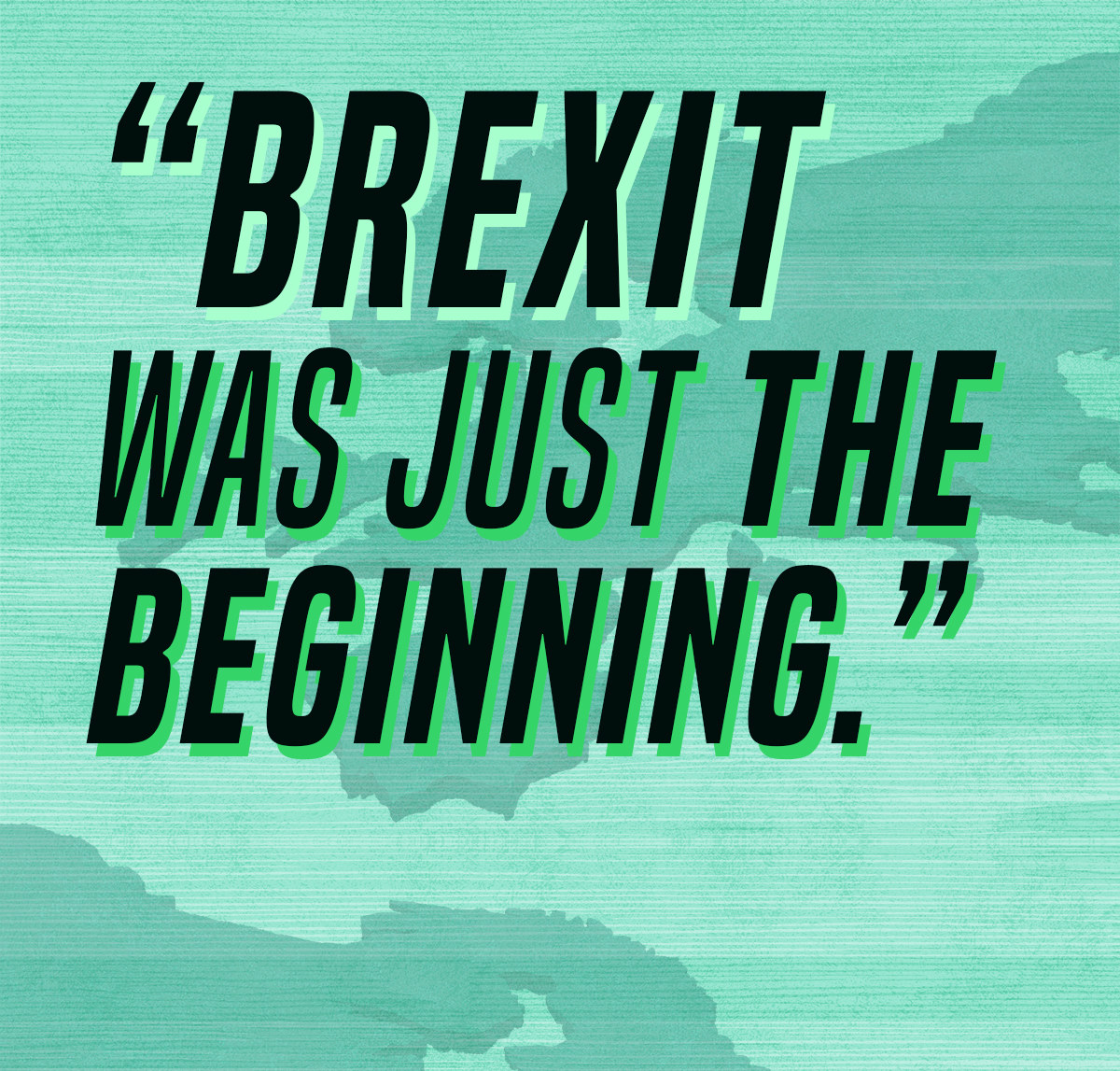
Former UKIP leader Nigel Farage told BuzzFeed News that despite his scepticism towards pollsters, the new research “supports what has been obvious to anyone with the eyes to see and the ears to hear”.
"What is happening across Europe is not some sudden revelation," Farage said, "but a slow build-up of disillusion amongst the peoples of Europe let down by an anti-democratic political class who are attempting to build a United States of Europe without the consent of the citizens.
"This is not a matter of the old labels of left or right. In the past both left and right were rooted in place, but no longer. The governing political class across this continent doesn't like the Europe in which it lives, holds its people in contempt, and would prefer to sit in executive lounges than engage with those whose work pays their wages. That is why you are seeing increasing disillusion with a failed EU project that is now doomed. Brexit was just the beginning.”
But British Conservative MP and former business minister Anna Soubry disagreed: “People in Britain and across Europe are turning their backs on openness. But the answer is not to pander to a cynical populism that seeks to divide people, but to stand up for what we believe in."

Earlier this month, following a string of bad state election results for her party, German chancellor Angela Merkel warned: “In 1990, when the wall fell, the Cold War came to an end and freedom blossomed everywhere; it looked like we were on an irreversible road to victory, and that it was just up to the rest of the world to join our model. Freedom had won. It now turns out things aren’t that simple."
The results do not automatically mean that there will be a surge in support for anti-establishment, populist parties. At general elections, voters make their choice for many different reasons – concerns about the economy may, for example, trump worries about multiculturalism. Many of the most disaffected do not vote at all.
However, as support for these views has increased, so have votes for more radical parties and candidates.
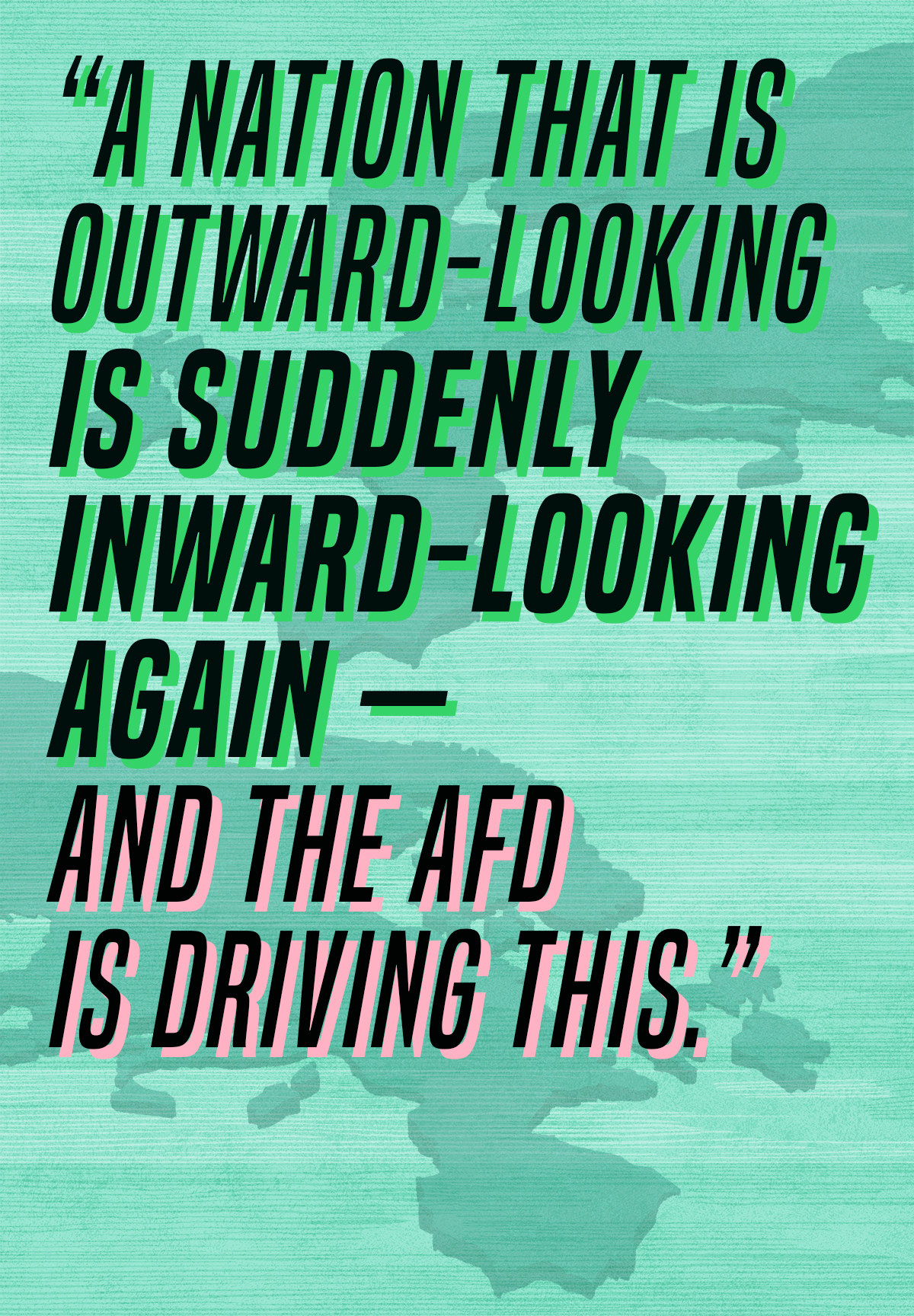
In Germany, for example, the anti-immigration Alternative for Germany (AfD) party now holds seats in 10 of Germany’s 16 states. Nationally, with a general election due next year, the party is polling above 15%. Three years ago, the AfD failed to win enough votes to enter parliament.
The YouGov data shows that most people in the country are centrists, internationalists, liberals and pro-EU. Authoritarian populism is still restricted to more extremist positions.
But certain subjects that have been off-limits since the end of the second world war – such as debates about German nationalism and identity and people’s ethnicity – are now making a comeback.
Hans Blomeier of the Konrad Adenauer Foundation told BuzzFeed News that “what is dangerous is not always the words themselves, but their history and what is behind them".
“A nation that is outward-looking is suddenly inward-looking again – and the AfD is driving this,” he said.
Like Germany, Denmark has also seen a shift in the tone of political debates. According to the YouGov data, a quarter of Danes who identify themselves as centrists nevertheless hold authoritarian populist beliefs – a similar proportion to those on the right-wing of the country’s political spectrum.
“There is a move towards more authoritarianism, discrimination based on ethnicity,” said Karen Melchior, a diplomat and candidate with the liberal Radikale party. “It is not a left-versus-right issue. It is like a cold war with competing visions of Europe.”
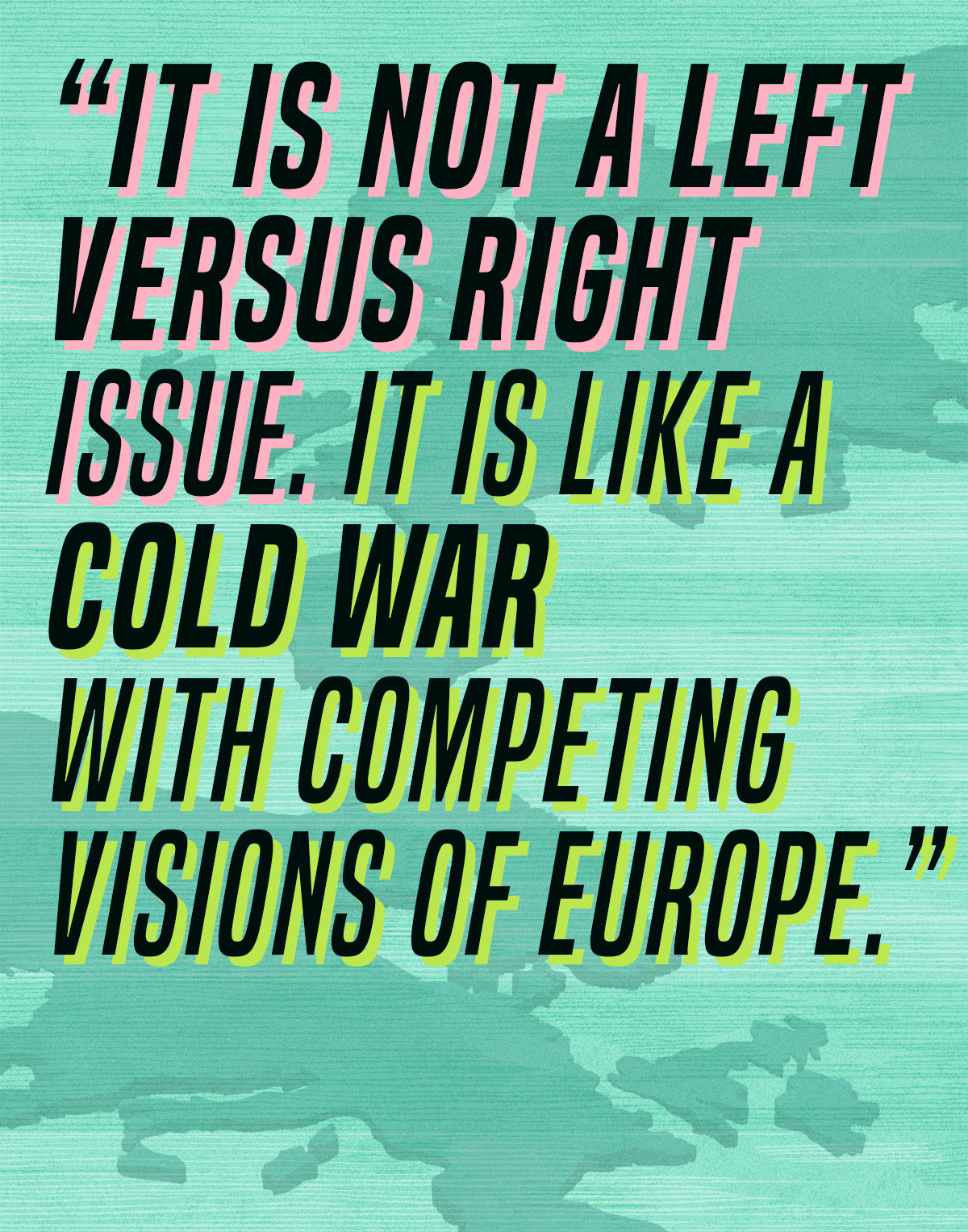
In recent policy discussions about introducing a tougher citizenship test and the appropriateness of segregating classrooms on the basis of ethnicity, even parts of the Social Democratic party held “discriminatory” views, Melchior claims.
Voters in France will soon have the chance to vote on the ideas that drive authoritarian populism. Polls suggest Marine Le Pen, leader of the anti-immigrant Front National, will easily make it through to the final round of two candidates in the country’s presidential elections in 2017.
But the anti-immigrant, nationalist rhetoric has not been limited to Le Pen. Former president Nicolas Sarkozy is among the other contenders for the presidency, and some, including within his own party, have accused him of adopting the Front National’s tone on immigration, Islam, and identity.
In recent weeks, Sarkozy has denied climate change is caused by humans, has said he would drop sanctions against Russia, and has even questioned the right to citizenship of some of those born in France. The latter is a constitutional bedrock, and Sarkozy himself attacked the Front National a decade ago for suggesting the right to citizenship should be abolished.

The rise of nationalist, anti-immigrant views has been strongest in central Europe, with Polish adults scoring the highest in the YouGov survey, taking into account all the measures polled.
In nearby Hungary, the “cultural counter-revolution” that central European leaders pledged in the wake of Brexit is even more stark.
The refugee crisis is one of the most powerful drivers of authoritarian, anti-immigrant views. A senior government official close to Hungarian prime minister Viktor Orban told BuzzFeed News “it is not just about the numbers. There is an issue with provenance, cultural, demographic and religious issues. Some Muslims do not respect the European way of life.
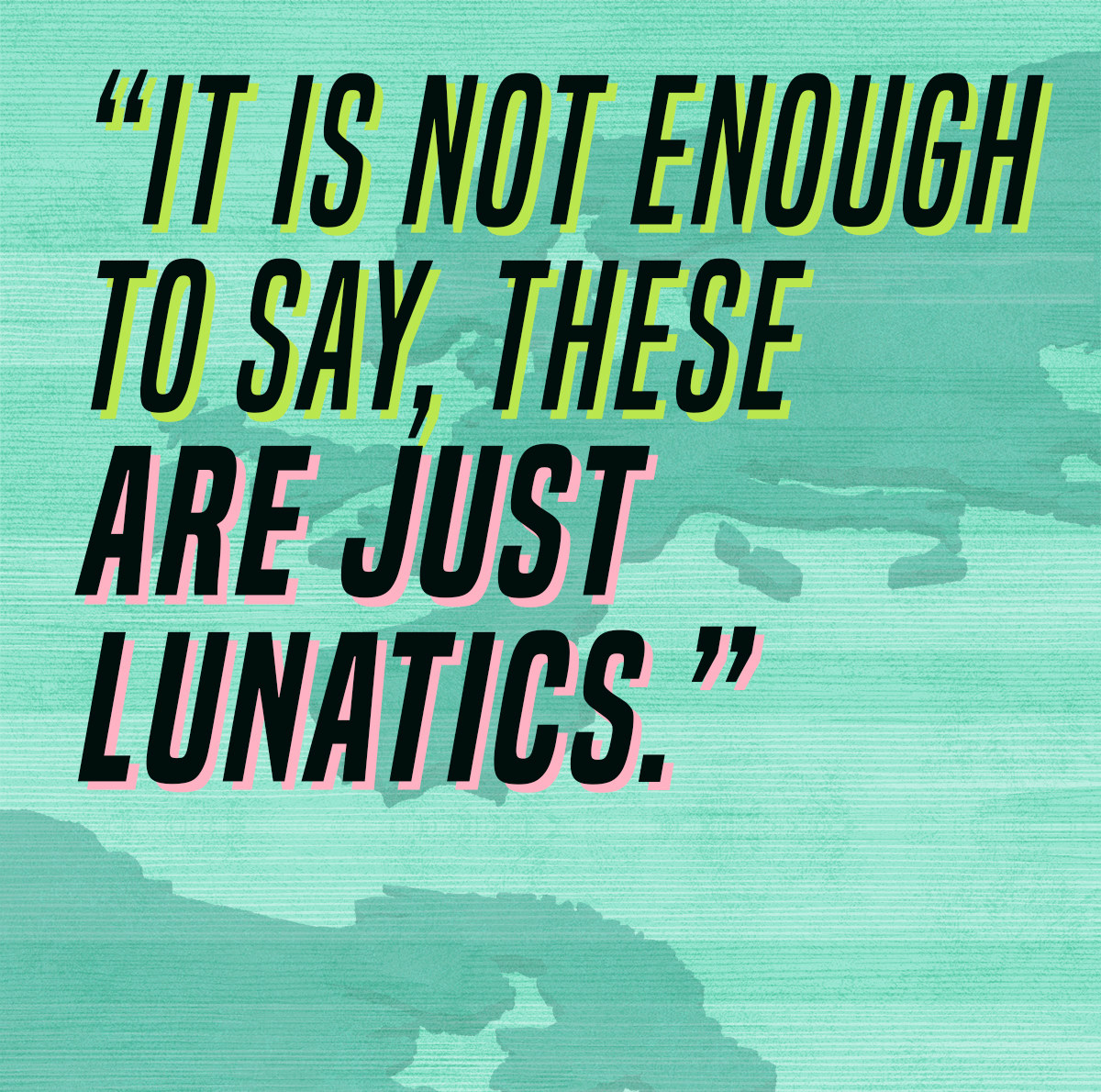
“Many North African migrants have not integrated, they live isolated in polarised communities. There are now districts in cities such as Paris and Copenhagen that are dangerous.”
The official predicts that there will be eventually be walls all around the EU. “Countries colonise others by war, or by flooding them with their people,” they added.
To the right of the ruling Fidesz party is Jobbik. In the space of a decade, the party, grown out of a right-wing youth association, has gone from polling less than 2% to 20%.
Jobbik MP Marton Gyongyosi, who also serves as vice-chairman of the parliamentary committee on foreign affairs, told BuzzFeed News Orban had basically copied Jobbik’s immigration policies.
But Gyongyosi claims that Jobbik’s success is best explained by its stance against “corrupt elites” and its opposition to “neoliberalism”.
The MP says the party’s economic policies have more in common with the Greek far-left Syriza and Italy’s anti-establishment Five Star Movement than with other far-right parties in Europe. “Immigration is the only common denominator between right-wing parties,” he says.
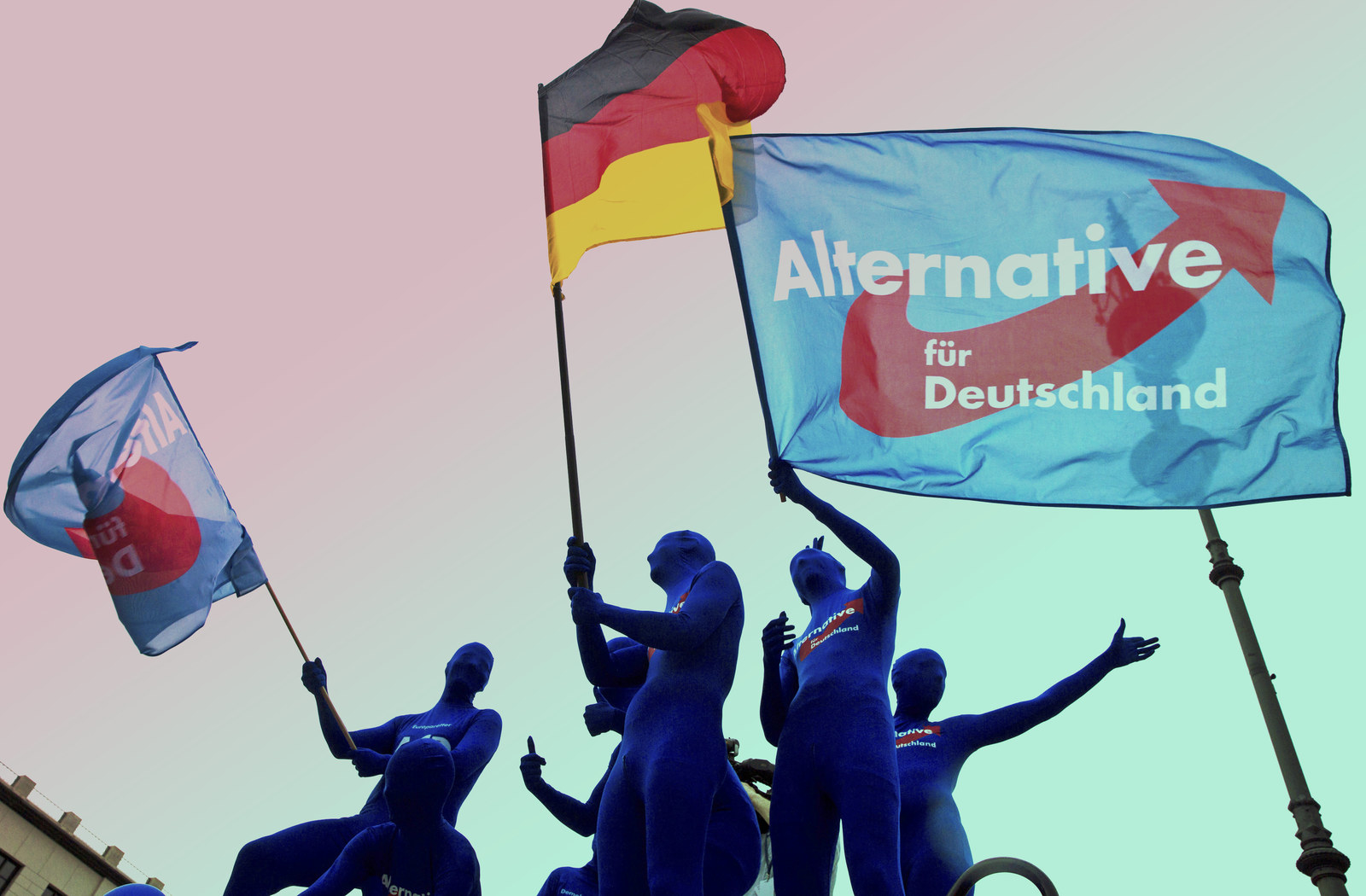
One trend that links Donald Trump’s run through the Republican primaries, the Brexit vote in the UK and the AfD’s success in recent German state elections is an increase in previous non-voters casting a ballot.
The YouGov data shows that authoritarian populist groups tend to be more likely to be male, older, with fewer educational qualifications, but the degree for which that holds varies from group to group and from country to country. This makes defining and responding to the demographic mix of populist parties difficult.
“In the past, these voters thought that all the parties were the same, now they see the AfD and Trump as different – protesting makes sense,” said Hans Blomeier, of the Konrad Adenauer Foundation. "They see them as a way to give the establishment a slap in the face. They deliver their anger in an election, it hurts everybody."
He warned that governments and parties that respond to populism with more populism are “playing with fire”.
But, he added, it is not enough to say “these are just lunatics”.
Commenting on the study on his Facebook page, the former Belgian prime minister, and the European Parliament's chief Brexit negotiator, Guy Verhofstadt, said the results showed that politics in Europe are no longer a battle between the "left" and "right", but increasingly between those who fight for "open societies" and "closed societies".
Adding, "we can put our heads in the sand and let Europe slowly die, or we use this crisis to renew and reform Europe".

Methodological notes: To build its research model, YouGov worked with Prof. David Sanders, Regius professor of political science at the University of Essex, to investigate the current political landscape and to quantify support for authoritarian populism.
Authoritarian populists (AP) share a set of common beliefs, opinions, and attitudes that are broadly characterised by being:
1) anti-immigration
2) anti-human rights
3) anti-EU institutions and integration policies
4) strong on foreign policy issues
The AP total score is based on the largest combination of the AP groups all leaning the same way – essentially the largest possible group a political party/movement might hope to capture. Other groups may still have some AP elements, but they will be on a different wing and so it is assumed cannot be won over in the same way.
Polling was carried out online between 31 August and 9 September 2016. 1711 individuals were polled in Great Britain. In all other countries at least 1,000 were surveyed. All samples were representative of national populations.
